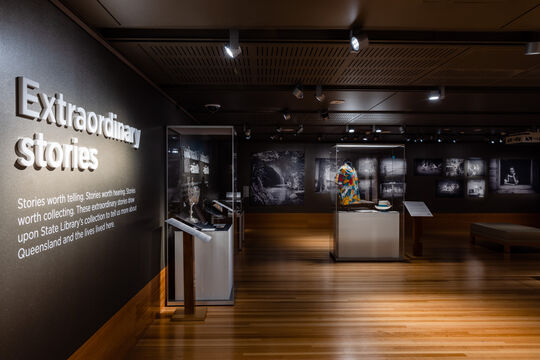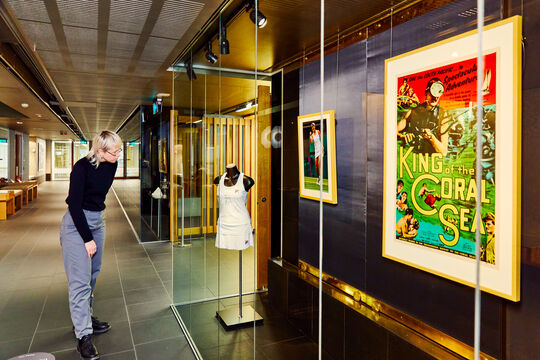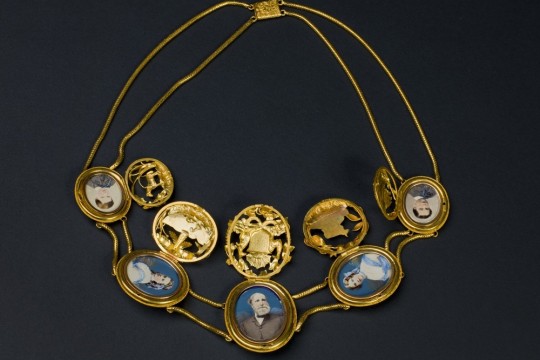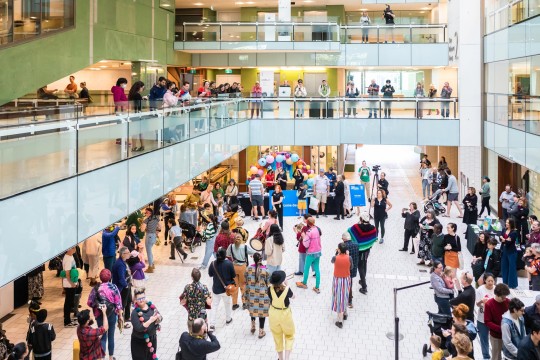
- Home
- Extraordinary stories
/
Extraordinary stories
About the showcase
Stories worth telling. Stories worth hearing. Stories worth collecting.
These extraordinary stories draw upon State Library's collection to tell us more about Queensland and the lives lived here.
Free showcase
Philip Bacon Heritage Gallery
Level 4
Open daily 10 am – 5 pm
Currently on display

Wilhemina Rawson
Wilhelmina Rawson, also known as Mina or Mrs. Lance Rawson, was Australia’s first published female cookbook author. Her publication Mrs. Lance Rawson’s Cookery Book and Household Hints (1878) marked the beginning of a remarkable writing career of editing and writing in newspapers, journals, books, and domestic guides. Living in what were once isolated and remote parts of Queensland, Mina wrote from firsthand experience and offered practical advice to women managing households with limited resources in challenging environments. At a time when few public platforms were available to women, publishing cookbooks and household manuals provided a socially acceptable way to share knowledge and assert expertise. Mina’s works extend beyond domestic instruction to provide insight into the everyday realities and challenges of colonial life. Her legacy reflects the resilience, ingenuity, and quiet authority of women building lives in 19th-century Australian society.

La Boite Theatre: 100 years
In 2025 La Boite Theatre Company celebrates its 100th anniversary, an extraordinary achievement for any organisation, let alone a performing arts company. La Boite’s story is tumultuous, full of triumphs and tribulations. What began as an idea of an amateur repertory theatre company for Brisbane is now a fully professional company known nationally for its cutting-edge programming and performances.
Without the passion, daring and drive of its leaders, and the community that has fiercely supported it through the decades, La Boite Theatre Company simply would not exist. A uniquely Queensland organisation, it has managed to remain relevant through a century of dramatic change.

True Relationships & Reproductive Health [formerly Family Planning Queensland]
Formed in 1971, the Family Planning Association of Queensland emerged at a time when access to information for unmarried couples was limited. Sex education in schools was rare, abortion was illegal, and pregnancy tests and contraception were difficult to obtain. Queensland’s teenage pregnancy rate was the highest in Australia.
The Association's aim was to provide clinical services and training to both medical professionals and the wider community and make contraceptive information more freely available. The first clinic opened in Fortitude Valley in March 1972. Services expanded quickly to several regional centres, transforming the Association into a professional statewide organisation that drove the evolution of reproductive and sexual health services.
In 2002 the Association changed its name to Family Planning Queensland, then in 2015 to True Relationships & Reproductive Health. Today, True maintains clinics in Brisbane, Cairns, Ipswich, Rockhampton and Toowoomba, offering sexual violence counselling and educational courses and resources across Queensland.
Lakeside: the motion picture
The Queensland Motor Sporting Club built the Lakeside International Raceway between 1959 and 1960 on an old dairy farm on the banks of Lake Kurwongbah. With limited finances, utilising volunteer labour and borrowed machinery, this unlikely venture revolutionised motor sport in Queensland.
Opening in 1961, Lakeside went on to become the spiritual homeland of Queensland motor racing hosting major events including the Australian Grand Prix, the Australian Touring Car Championship, and the Australian Superbike Championship, and became a breeding ground for generations of successful Queensland drivers and riders.
Lakeside was filmed by Mr N. E. Winn, about whom little is known, and pieces together footage taken between 1959 to the early 1960's. It gives us insight into the original development in a grassy paddock, right through to competitive racing on the completed track in front of large crowds. The quality of the footage varies with some fading badly over time, however, as a whole, the film showcases the incredible efforts made by a group of dedicated individuals to provide Queensland with a raceway of national significance.

4ZZZ: 50 years of people-powered radio
For fifty years, 4ZZZ has been a resilient, subversive and crucial voice on Brisbane’s airwaves. Launching in late 1975 as 4ZZ-FM, the station was conceived by a group of dedicated students and activists, fed up with the conservative media landscape. With a focus on new and local music, independent news and current affairs, and youth-oriented programming, 4ZZZ revolutionised local radio.
Largely run by dedicated volunteers, 4ZZZ’s income has always been dependent on subscribers, promotions and events ranging from its legendary early Joint Effort concerts to the now iconic Market Days of the 1980s and 1990s. The annual Radiothon subscription drive, the 4ZZZ Hottest 100 and the Radio Times publication have been other much-loved station staples.
For generations of young people, 4ZZZ has been a cultural touchstone, profoundly impacting the musical landscape of Brisbane and providing a local platform to underrepresented communities and many thousands of appreciative listeners.
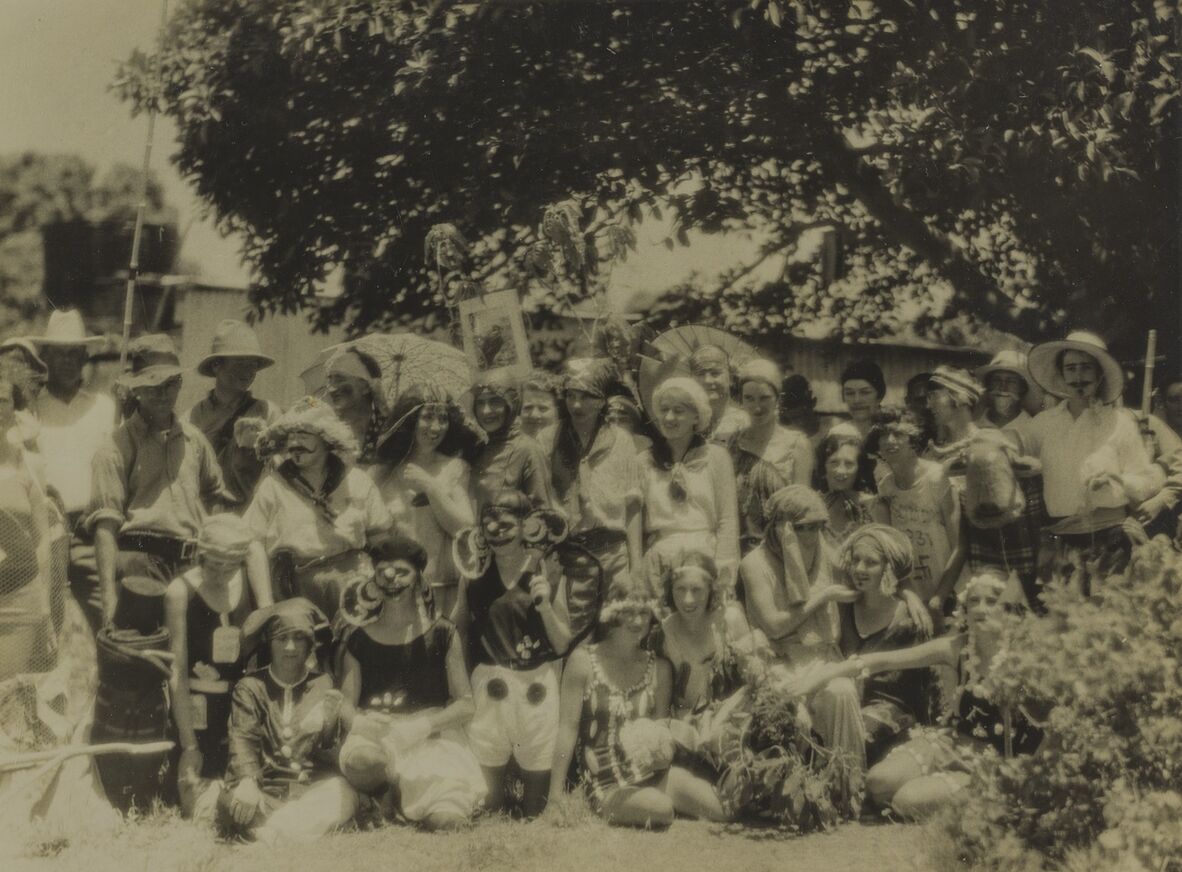
Embury Expeditions to the Great Barrier Reef
A cross between a scientific expedition and a Great Barrier Reef holiday, the Embury Expeditions were privately organised by New South Wales school teacher, E.M. (Monty) Embury.
It was a family venture, with Monty’s brother Arch and sister Bobbe heavily involved, but Monty was the driving force. His impressive organisational abilities transported large groups of people to the Whitsundays, along with all the food, water and equipment needed for several weeks.
They were accompanied by professional photographers like Otho Webb, and scientists who gave lectures and led scientific excursions. That was the educational side of things. The entertainment included spectacular fishing by day – going by the number of photographs of people with fish bigger than themselves – and amusements such as dances and concerts at night.
The Embury Expeditions to the Whitsundays were held once or twice a year from December 1928 to December 1934. Over those few years, however, the commercial tourist industry to North Queensland took off. Monty could not compete. He sold his ‘resort’ on Hayman Island and transferred his energies, and his early form of eco-tourism, to Central Australia.
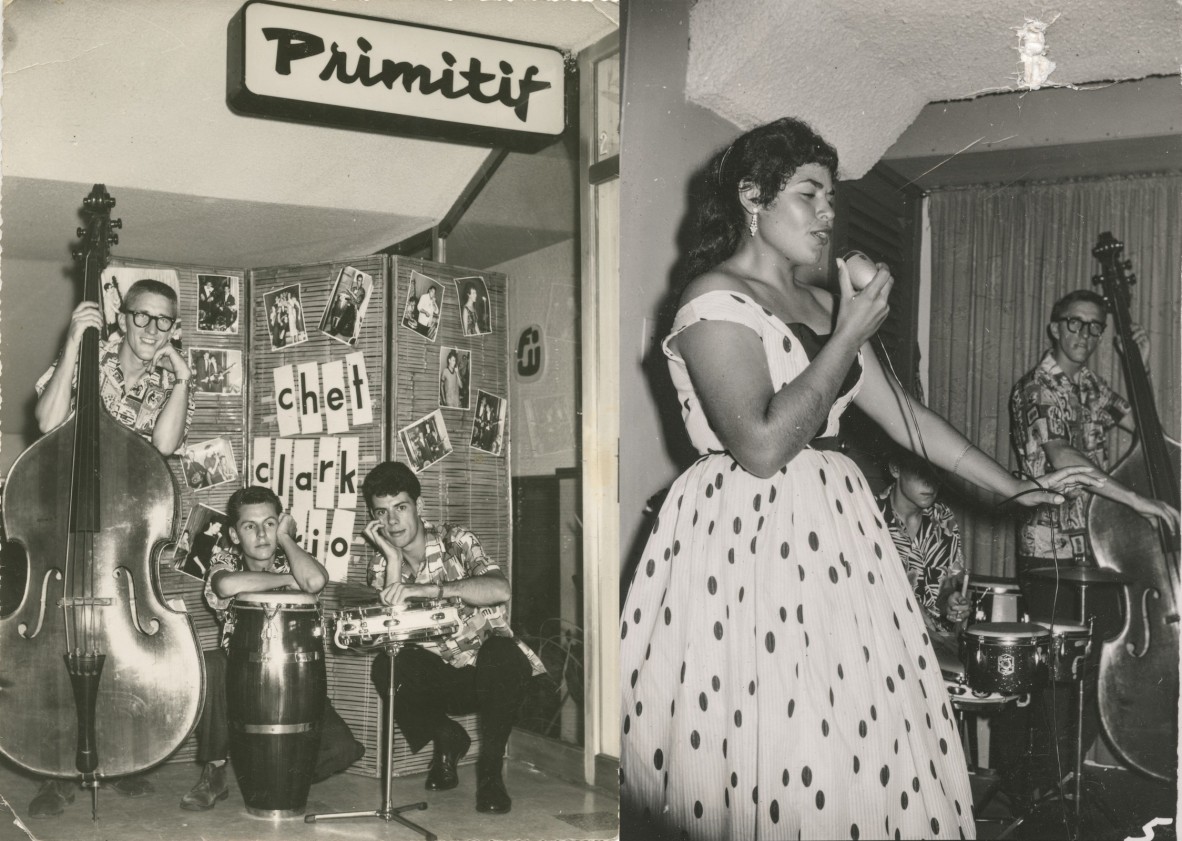
Wilma Reading
Wilma Reading’s extraordinary story has always been backed by music.
From an early age, Wilma learnt musical instruments and how to compose her own melody lines and chord charts. Growing up in a musical family, they would provide their entertainment with their vocal and instrumental talent.
Wilma’s path to stardom began at 17, following an impromptu performance at a Piccadilly Arcade Cafe. She was offered a job on the spot, fronting an orchestra-backed band in a Brisbane ballroom.
Her honeyed vocals and natural talent were matched by a steadfast determination to succeed, and they took her to stages across the world, from New York, to London, Las Vegas, and Tokyo. By the 1960s, Wilma had become a jazz legend and international sensation, recording albums and collaborating with icons like Duke Ellington.
Wilma was inducted into the National Indigenous Music Awards Hall of Fame in 2019 and continues to inspire musicians today.
You can find this interview in our catalogue here.
Join a curator's tour
